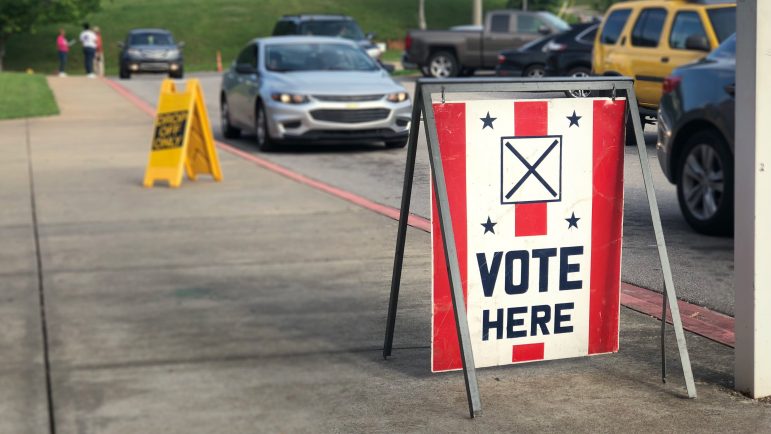After a lengthy battle in the U.S. Supreme Court, federal judges redrew Alabama’s congressional districts last year, creating the state’s second majority-Black district.
The change is set up to allow Black voters in District 2 — which spans from border to border across the southern portion of the state — a chance to be better represented in elections. But with less than three weeks until the March 5 primary elections, voting rights advocates say many residents in the district haven’t been notified of the change.
That’s where groups like The South Alabama Black Women’s Roundtable have stepped in.
The organization has spent the last week phone banking, calling thousands of District 2 voters to remind them about the primary, according to Letitia Jackson, the group’s convener.
“The majority of voters we have been talking to are very surprised and didn’t know they were in a new district, didn’t know the history of how the district came about and are glad that we are calling to inform them,” Jackson said. “The majority of them are saying, ‘Yes, we will definitely get out and vote.’”
Previously, District 2’s voting population was about one-third Black. Now, it’s nearly half. Jackson, a Dothan resident, was one plaintiff in the federal lawsuit for the creation of the new congressional map. Her county, Houston, was moved into the new District 1, but like the voters she’s spoken to, she was not notified of the change.
Recently, during a trip to Montgomery, she visited the Alabama Secretary of State’s office to find a hard copy of the new map.
“I was directed to go to the elections office — the Secretary of State’s office — and they told me to go online to look for it,” she said. “I said ‘No, I need an actual copy of the map of the second Congressional District.’”
Jackson said someone in the office redirected her to the Alabama Legislature’s Reapportionment Office for a copy, where she eventually received one.
“I thought that was very interesting, that the elections office did not have copies of the map. I guess that’s just the way they run it there,” she said. “I find it to be a dereliction of duty. Voters need to know that their voting district has changed.”
The Alabama Secretary of State’s Office acts as the “chief election officer,” ensuring that all elections in the state are run fairly. However, a spokesperson for the office told the Gulf States Newsroom via email that it is “not authorized to distribute mailers, postcards or text messages to voters notifying them that they have been redistricted.” The responsibility for redistricting and reassigning voters, the email said, falls to each county.
The office does, however, have sample ballots available for each county for voters to view before the March 5 primary.
There are more than three million Alabama residents who are voting-age eligible. Jackson said she hopes the South Alabama Black Women’s Roundtable can reach as many in District 2 as they can throughout the year and keep them informed of their right to cast their vote.
“I think people need to understand what happens, what can be changed in their communities and in their lives on a local level and at the federal level,” she said. “As a civics education, we try to educate voters so they understand how change happens and their relationship to that change and their power.”
The deadline to register to vote electronically ahead of the primary is February 19 before midnight.
This story was produced by the Gulf States Newsroom, a collaboration between Mississippi Public Broadcasting, WBHM in Alabama, WWNO and WRKF in Louisiana and NPR.

